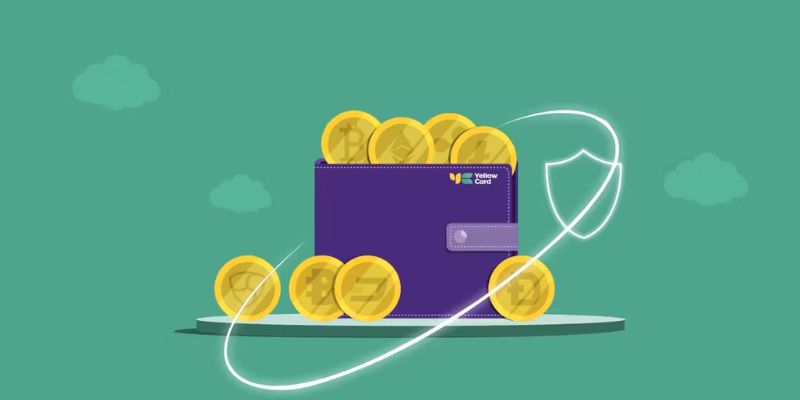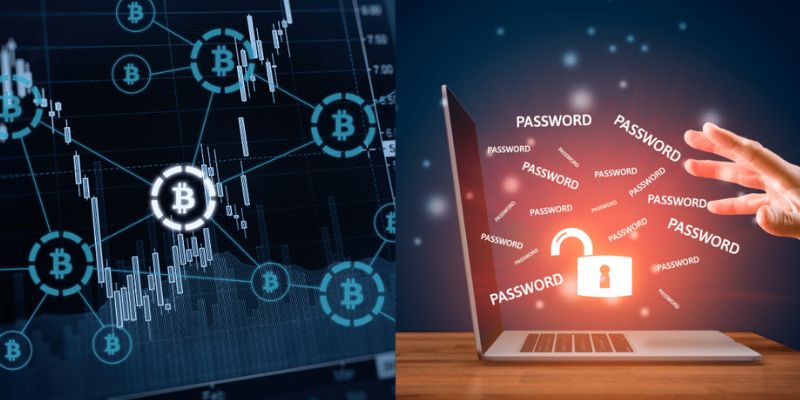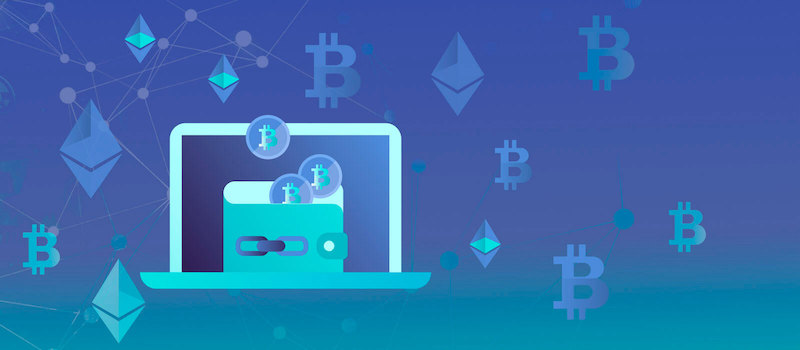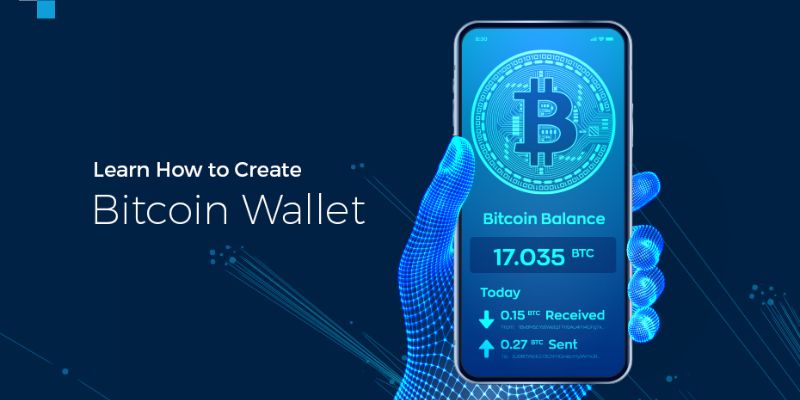How to prevent crypto wallet hacks? It’s simpler than you think. Imagine your digital coins tucked away safe, like gold in a vault. But, the web is crawling with thieves eager to pry open your digital wallet. As an expert, I’ve seen it all—from sneaky scams to full-blown cyber heists. You need a game plan, and that’s where I come in. I’ll guide you past the pitfalls and shore up your wallet’s defenses. Whether you’re a trading pro or a crypto newbie, these straightforward steps will lock down your loot. Ready to be the Fort Knox of crypto? Let’s dive in and keep those hackers at bay.
Understanding the Risks: Why Crypto Wallet Security is Paramount
The Mechanics of Crypto Wallet Hacks
Hackers love crypto wallets. Wallets have keys like your house keys. If a hacker gets your keys, they can get your coins. They use tricks to steal these keys. One trick is fake websites that look like real ones. You type in your key, and bam, they’ve got you. Also, they can send you a virus to get your key. Always keep your guard up.
Common Types of Wallet Exploits and How They Work
Bad guys find weak spots in wallet software to break in. They can trick you into giving up your key, too. Let’s say you click on a bad link. It could install something that watches what you type. This is how they get your key. Use different types of protection like multi-factor authentication. This means they need more than your key to get in. Also, encryption is your friend. It scrambles your info so only you can read it with your key.
Protect blockchain investments with care. Without the right security, anyone can take them. Think of your crypto like gold. You wouldn’t leave gold out. You’d put it in a safe. This is why you need a good cryptocurrency wallet security plan.
Multi-factor authentication for wallets is a must. Like needing a key and a code to open a lock. It adds an extra step for anyone trying to get in. Next, encryption for crypto wallets keeps your coins safe. It turns your private info into codes that are hard to break.
Safeguarding virtual currency isn’t hard, but you need to know how. For starters, pick between hardware wallets and software wallets. Hardware wallets are like a USB stick for your crypto coins. They’re good because they’re not always online. Online things can be hacked easier. Software wallets are on your phone or computer. They’re handy but can be less safe.
Securing private keys is huge. Your key is the only way in and out of your wallet. Keep it secret, keep it safe. One way to do this is by using cold storage solutions. This means keeping your key off the internet when you’re not using it. Safe and sound.
Detecting phishing scams is something to get good at. A phishing scam is when someone tries to trick you. They want your private info. They might email you saying there’s a problem with your wallet. But don’t give your info! These emails can be fakes.
Always have backup strategies for wallet recovery. In case something goes wrong, like if you lose your key. It’s like having a spare key for your car. Biometric security measures like your fingerprint can come in handy too.
For software updates and patches, always say yes. These close security holes. They’re like fixes for weak spots. Like repairing a fence so no one can sneak through.
Just like that, you now understand the basics. Keep your crypto safe by being smart and using the right tools. Remember, it’s your digital gold. Protect it well.
Fortifying Your Crypto Defenses: Essential Security Measures
Implementing Multi-Factor Authentication and Robust Encryption
Multi-factor authentication (MFA) means using more than one check to unlock your crypto wallet. For example, a password plus a code from your phone. This is key for cryptocurrency wallet security. It’s like having a combo lock, not just a key. MFA makes sure it’s really you trying to get in.
Strong encryption scrambles your wallet data so thieves can’t read it. Think of it like a secret code that only you can crack. It turns your wallet into a safe no one can crack open. That means peace of mind for protecting blockchain investments. MFA and encryption lock down your digital coins tightly.
The Role of Cold Storage and Hardware Wallets in Protecting Assets
Cold storage is like a treasure chest buried in a secret spot. It holds your crypto offline. This is safe from hackers because it’s not on the web. Hardware wallets are the chest keys. They’re like USB drives holding your crypto safe and sound. No internet, no hacking. Use these to safeguard your virtual currency.
“Is cold storage better than online wallets?” Yes, for big savings. It’s like keeping most of your money in a safe, not a wallet. For daily use, a smaller amount can stay in an online ‘software’ wallet. This is for buying things or trading.
When we say securing private keys, we mean keeping the secret codes that unlock your crypto. With hardware wallets, you control these keys. No third-party can get to them. That’s full control over your crypto coins.
All of this helps protect blockchain investments. By using cold storage and hardware wallets, you can be confident your digital gold won’t be stolen. Remember, securing your crypto is not a one-and-done deal. Keeping up with software updates and patches is a must.
Updates fix holes that hackers could slip through. Just like you fix a broken fence to keep thieves out. Also, always double-check your wallet address. It’s like checking the number on a house before you go in.
Lastly, use trusted wallet providers. This is like choosing a bank with the best vault. They’ll have the top security out there. With these moves, your digital gold is locked away tight. Ready for when you need it, safe from sticky fingers.
By sticking to these simple, solid steps, you put up a strong wall around your digital treasure. That’s smart and safe crypto living!
Staying Ahead of Cyber Criminals: Detecting and Avoiding Scams
Strategies to Identify and Avoid Phishing Attempts
When you’re out to protect your blockchain investments, you need to spot scams fast. The main trick bad guys use is called phishing. It’s where they fake an email or a website to trick you. They want you to give them passwords or click on bad links. You’ve got to be sharp to stay safe.
How can you spot a phishing scam? It’s in the details. Watch out for odd emails that are not from a source you trust. They might ask for your keys to your crypto wallet. Never share these—think of them as the keys to your online treasure chest. Always use multi-factor authentication for your wallets. This adds another step for anyone trying to get in.
To stop phishers, check the email address carefully. If it looks weird, do not trust it. Also, pop-up messages asking for your crypto info are bad news. If you’re unsure, go directly to the service’s official site. Look for a secure symbol—a lock icon—near the web address. This shows that encryption for your data is up and strong.
For extra safety, think about where you click. Avoid links or downloads from unknown sources. They can have malware that breaks into your wallet. Have good anti-malware set up to guard your crypto wallet too. And always keep your software up-to-date. Hackers can use known holes in old software to sneak in. Patches close these gaps.
Recognizing and Steering Clear of Fraudulent ICOs and Links
New coins pop up all the time. They say you’ll make big money if you buy in early. But beware, some of these ICOs (Initial Coin Offerings) are just scams. They take your money and vanish. So, how do you know which ones to trust? Start by doing your homework. Read a lot and ask smart folks in the space for advice. Legit projects have clear info out there.
Steer clear of promises that seem too good. Use trusted wallet providers when you handle your crypto. They often have safety nets if things go wrong. Before joining an ICO, see if it has a good crew and a solid plan. And check that they’ve passed a smart contract audit. This is like a health check for the project’s code.
In the crypto world, a golden rule is to double-check everything. That means wallet addresses too. Even a tiny mistake can send your digital gold to the wrong hands. Make sure you verify where you send your coins. Use secure wallet interfaces and have a clean backup strategy for wallet recovery.
Remember, your crypto’s safety starts with you. By knowing how to spot risks, you can keep your digital gold safe. It’s like being a treasure hunter who also knows how to beat the traps. So learn these steps, use them, and stay one step ahead of cyber crooks.
Best Practices for Crypto Asset Management and Recovery
Creating and Managing Secure Backup Solutions
Do you want to keep your crypto safe? Let’s talk about backups. Keep your keys in more than one place. This means not just written down on paper but also saved on USB drives or even special made-for-crypto storage devices. Store them in different locations like a secure safe or a safety deposit box. And always remember, if you lose your keys, you lose your coins. No ifs, ands, or buts.
Now, it might sound simple, but it’s so vital. A good backup can be the difference between keeping your digital gold or losing it to a hacker. With good backups, even if you lose a device, your assets are safe. Make sure your backup is encrypted too. This stops anyone who finds it from accessing your wealth without permission.
Adopting Biometric Security and Other Advanced Protective Measures
Let’s beef up that security, shall we? Start using your face, fingerprint, or other unique body features to lock down your wallet. Biometric security adds that extra layer that makes it tough for any hacker to break in. Isn’t it cool to think your unique features can protect your crypto?
Also, imagine having a guard that asks for a secret code before you can do anything. That’s what two-step verification does. Always turn it on, and hackers will have a way harder time getting into your wallet. Combine this with solid passwords and changing them often to keep the hackers guessing.
Tech updates? Don’t skip them! Updates fix holes in security that hackers could slip through. So, when you see that “Update available” message, hit it. Plus, anti-malware software is another must-have. It’s like a loyal watchdog for your wallet, keeping those sneaky malware out.
If you’re serious about crypto, consider getting a hardware wallet. They’re like personal vaults for your virtual coins. Hardware beats software wallets for safety. And keep the bulk of your stash in cold storage – think of it as putting your assets in a deep freeze, away from the internet and out of reach of cyber thugs.
When you’re dealing with DeFi, stay sharp. Keep up-to-date on the safest platforms and never dive into anything without checking it twice. And those public Wi-Fi networks? Just don’t. Use your home network when dealing with money and personal stuff. It’s a lot less risky.
Remember, friends, in this digital age, losing your crypto is easier than you think if you let your guard down. But play it smart with backup strategies and the right security measures, and you’ll be golden – or should I say, crypto-golden! Protect your digital assets like they’re the most precious thing on Earth. Because, to many of us, they are.
In this post, we tackled how crucial it is to keep your crypto safe. We looked at the ways hackers break into wallets and the tricks they use. Then, we shifted gears to show you how to toughen up your security. You learned about using not just one, but many checks, and how putting your crypto in cold storage can act like a safe.
Next up, we gave you the lowdown on beating the bad guys. Smart moves like spotting fishy emails and scammy offers can save your digital dollars. And, to keep every coin safe, we highlighted backup plans and cutting-edge locks like fingerprint checks.
Remember, staying sharp and up-to-date on these tips is the best play to protect your crypto. Stick with these strategies, and your virtual vault will be a fortress against thieves!
Q&A :
How can I secure my cryptocurrency wallet from hackers?
Securing your cryptocurrency wallet involves several critical steps. First and foremost, always use strong, unique passwords for your wallet and any related accounts. Consider using a password manager to generate and store complex passwords. Enable two-factor authentication (2FA) to add an extra layer of security, and where possible, use hardware 2FA devices. Keep the software of your wallet up to date to protect against new vulnerabilities. Additionally, be cautious of phishing attempts and never disclose your private keys or seed phrases to anyone.
What are the best practices for keeping my crypto wallet safe?
Best practices for keeping your crypto wallet safe include regularly backing up your wallet, especially after each transaction or when you create new addresses. Store backups in multiple secure locations. Educate yourself on the different types of wallets available, such as hot wallets (online, less secure) and cold wallets (offline, more secure), and choose the type that best fits your security needs. Also, consider using multi-signature wallets, which require multiple approvals before any transaction can be made. Lastly, stay informed about the latest security threats and how to avoid them.
Are hardware wallets more secure against cyber theft?
Yes, hardware wallets are generally more secure against cyber theft than software wallets because hardware wallets store your private keys offline, making them less vulnerable to online hacking attempts. They are designed to be immune to computer viruses that could compromise software wallets, and transactions have to be physically verified on the device. However, it’s still important to purchase hardware wallets from reputable vendors and ensure that the device has not been tampered with.
Can updating my wallet software help prevent hacking?
Updating your wallet software can significantly help in preventing hacking. Developers regularly release updates that patch security vulnerabilities and enhance wallet security. By keeping your wallet software up to date, you ensure that you have the latest security enhancements and protections against known exploits. It’s a critical step in safeguarding your crypto assets.
How do I identify a phishing scam targeting my crypto wallet?
Identifying a phishing scam involves vigilance and knowledge of common tactics used by scammers. Be wary of unsolicited communications, especially those that pressure you to act quickly or threaten account closure. Always double-check URLs to ensure they match the legitimate site, and look for secure HTTPS connections. Be suspicious of emails or messages that have typos, unusual sender addresses, or request sensitive information. Never click on links or download attachments from unknown sources, and use anti-phishing software to help detect potential threats. Remember, legitimate companies will never ask for your private keys or wallet passphrase.






